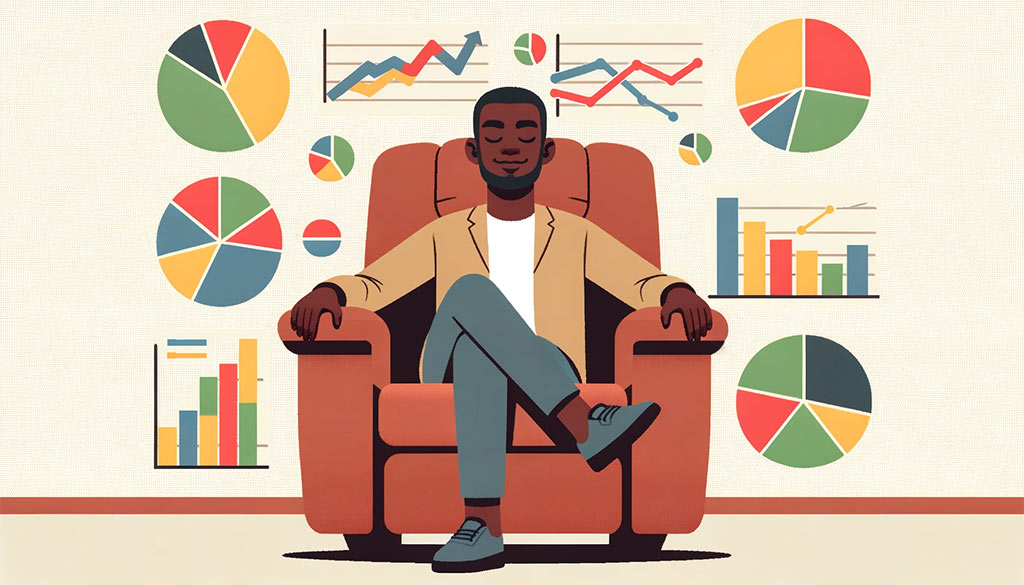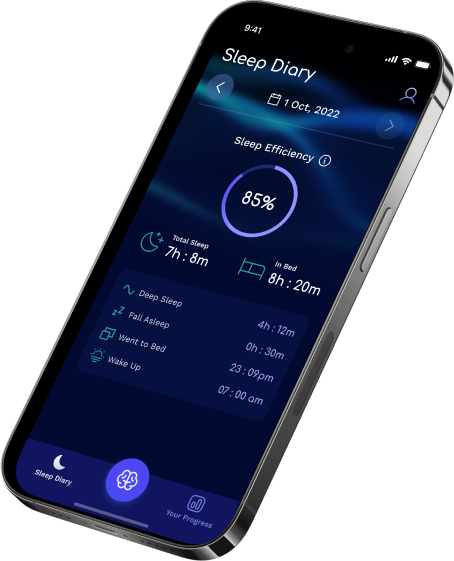
If you’re anything like me, you have at least some goals in your life, some objectives to look and work forward to — stuff like fitness, health, diet, relationships, career, skills, and finance; these are some of mine.
However, having sleep goals is also a thing!
Since exercise, diet, and sleep are the three foundational pillars of a healthy human being, it’s strange it doesn’t occur to most people to improve theirs.
Is it maybe because they already sleep well and don’t need to improve anything? The problem with that hypothesis is that the data is clear — many people worldwide suffer from poor sleep. Just like they would suffer from poor diet and poor fitness. Yet, much interest is generated in improving those two, but not so much in improving sleep.
My guess (and even using myself as an example) is that people settle for “sleep that’s good enough to get them through the day.”
If they occasionally stumble across one of those nights of sleep that feel really good and refreshing, that’s a bonus!
But what if you could sleep like that every night?
…
Hopefully, a light bulb turned on in your head right now 💡
Because realizing that’s a possibility is not even something that crosses most people’s minds.
They might think sleeping like that is something related to chance.
I’m telling you right now, it’s not. It’s something inside your control, but it requires some pro-activity to achieve it, the same way getting abs requires pro-activity at the gym and in the kitchen.
Why Sleep?
So, why bother if you already get “good enough” sleep?
Well, I have previously written an overview of all the most important benefits that proper (not just good enough) sleep can bring, but the main idea is that it boosts cognitive and emotional well-being, enhances physical health and performance, offers protective health benefits, and contributes to increased lifespan and reduced mortality risk.
Sleep will directly and indirectly allow you to achieve more and better. That’s what being a “foundational pillar” of something is all about.
In summary, sleep-maxxing is life-maxxing.
Sleep Goals
What sleep goals are worth focusing on?
I’ll start with a personal example — I am a night owl. But I want to change that. Why? Because I know that even though people with this chronotype feel naturally inclined to be awake at night (it certainly feels natural to me), that doesn’t invalidate what the data says about them: higher rates of depression and ADHD.
Also, I like the idea of syncing my natural circadian rhythms with those of the Sun so that I can establish a Nature-Human coherent rhythm.
So there you go, our first example of some sleep goals:
- Sync with the Sun 🌞
- Stop being a Night Owl 🦉
Many other sleep goals can be thought of.
- Aiming for and adequate number of slept hours.
- Going to bed and waking up at the same time every day, and keep doing it consistently.
- Falling asleep within 15 minutes of lying down.
- Understanding the difference between time in bed and time asleep and improving that ratio.
- Trying to get few sleep or no interruptions after the initial sleep onset.
- Developing the ability to quickly fall asleep after waking up in the middle of the night.
- Having a proper balance between light, deep, and REM sleep.
- Having a lower heart rate during sleep.
However, all of these metrics lead to the ultimate sleep goal:
- Subjective Sleep Satisfaction: consistently feeling that your sleep was restorative 🏆
How To Do It
Once you’ve decided on some sleep goals, it’s useful to have the proper tools to track your progress.
Just the same way I use the FitNotes app to track my progress at the gym, following the principle of progressive overload; and MyFitnessPal to track my calories and macros; now my team and I decided to launch the LucidLink sleep diary app to complete the trifecta of human health (i.e. exercise, nutrition, and sleep).
I use LucidLink to track my sleep goals. Whether I’m feeling like using my Fitbit Charge 5 to track my sleep that night or if I simply track it manually (we’ve made adding new entries using either approach fast, reliable, and seamless), the result is the same — the tracking of sleep objectives over the long-term.
The best part is that it also tells me how my lifestyle and habits affect my sleep objectives by showing correlations. For instance, LucidLink has helped me understand that incorporating HIIT workouts into my weightlifting program helped me improve my time spent in deep sleep. So now I have some data driving my lifestyle decisions.
Whatever your sleep goals might be, LucidLink can adapt and help you achieve them.
Final Thoughts
We all set goals, but what about sleep goals? Sleeping just enough to get by is nice and all, but imagine feeling great every morning.
We can sleep better by knowing more about our sleep and making small changes.
Well, I’m already in that process. Join me on this journey, and let’s do it together!
Until next time,
MN
🌙 If you enjoy sleep-related content, join our community! Subscribe to our newsletter, follow us on your favorite social media, and join us for a real-time chat on Discord ☀
